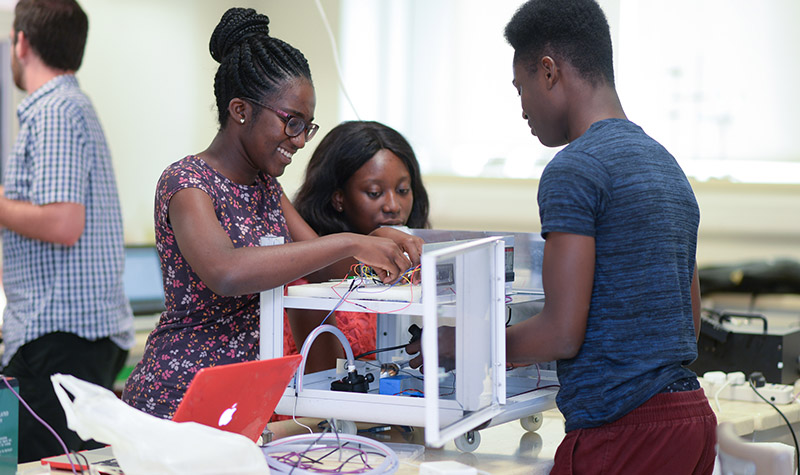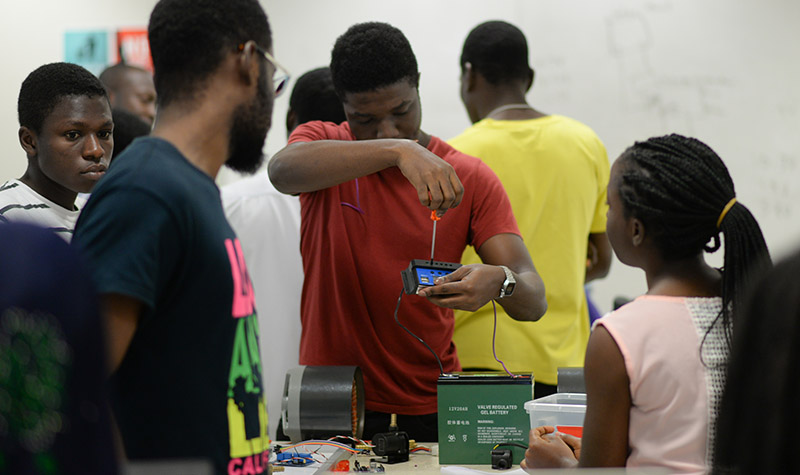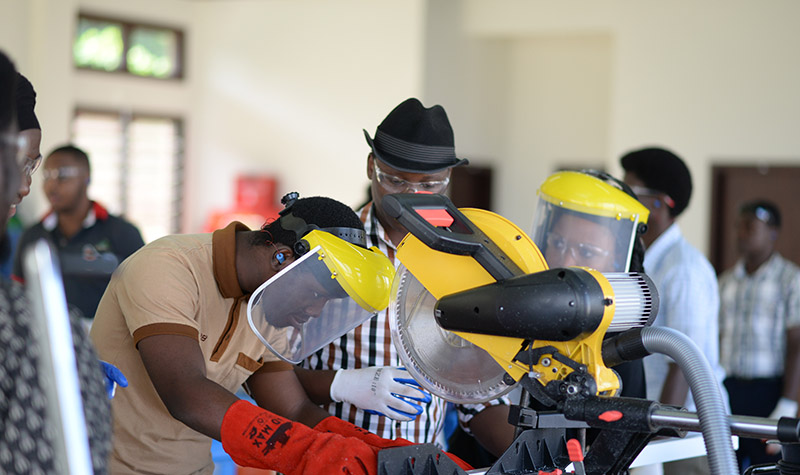
For their final project for the year, members of the freshmen engineering class designed and built solar powered smart irrigation systems. The project was part of the six-week long Introduction to Engineering class, where the students are introduced to a breadth of tools and equipment to help break them into the Engineering field.

“The course is an immersion exercise for all first-year engineering students,” said Fred McBagonluri, Dean of Engineering School “It’s an opportunity for them to experience different components of Engineering, and helps them facilitate the decision-making process for which direction they want to go into Engineering. Our hope is for them to get to do something exciting; putting together all the modules of the semester into a complete realization of a product, so that they will be able to synthesize what is theoretical and what is practical.”
As part of the class, the students built solar-powered smart irrigation systems that can potentially be scaled up to service agricultural irrigation needs across the country.
For Ghana and several countries across the African continent, agriculture is an integral component of their economies. While few large-scale farmers have access to irrigation technologies, most small to medium scale farms are rain-fed, and the farmers lack the technology to effectively irrigate their land. Consequently, in the dry season, where there is little to no rain, production is significantly hampered, or in most cases comes to a standstill.

“In designing the project for the class, we attempted to take in the issue of providing food to feed our teeming population,” said Dr. McBagonluri. “Not only do we have an abundance of solar energy in Africa, but we also wanted to show the young ones that agriculture, is not reserved for the uneducated. It can be mechanised, it can be commercialised and it can be fun.”

In building the irrigation systems, students gained experience in computer modelling, programming and spending time in the workshop (cutting and assembling systems that address the problem).
“Through this process, I feel I’ve grown as an Engineering student,” said Radiatu Mohammed. “From computer-aided modelling with applications like Solidworks and Matlab, to learning how to cut, drill and build pumps, the experience has taught me a lot about how to approach and solve problems.”